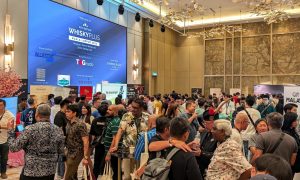Contributed by Mike Miller, Founder and Clinical Director, Yatra Trauma Centre
Living abroad can be exciting but also emotionally demanding. One therapeutic approach, Internal Family Systems, is helping expatriates worldwide reconnect with themselves and build resilience for life far from home.
Living as an expatriate can be exhilarating – new cultures, new experiences, and fresh opportunities. Yet it can also bring isolation, anxiety, and unexpected emotional strain. Being far from home often means missing familiar support networks, while navigating work pressures, cultural differences, and the subtle pressure to “appear fine” back home. The gap in access to mental health care is particularly pronounced among foreign nationals, many of whom face barriers to finding culturally sensitive support. For some, these challenges can exacerbate unresolved trauma, leaving them feeling stuck or disconnected.
One therapeutic approach that has proven especially effective for many is Internal Family Systems (IFS). Originally developed in the United States, IFS has gained traction worldwide for its structured, compassionate framework that helps people reconnect with themselves, even amid the chaos of life abroad.
IFS works on the principle that our minds are made up of different “parts,” each with its own emotions, memories, and roles. Some parts are protective, like managers that try to prevent pain, while others – known as exiles – hold trauma, shame, or fear from earlier life experiences. Often, these exiles feel as though they’re still trapped in the original situations that caused their suffering. They don’t recognize that you’ve grown, that you now have agency as an adult, and that you are no longer powerless.

Meeting these exiles for the first time can be startling. The process invites us to help the exile observe the present: to recognize that they have survived, grown, and are no longer alone. Simply witnessing and validating these parts can be profoundly healing. Sometimes, the act of presence and compassionate attention is enough for a part to finally exhale, releasing years of tension and shame.
IFS emphasizes that there are no bad parts. Even critical or controlling parts are usually trying to protect us in the only way they know how. Many such parts are exhausted, worn out from decades of guarding our inner exiles. Meeting these parts with curiosity and kindness – rather than fear – often sparks surprising transformation. For example, some people find their harsh internal voices mirror the tones of demanding caregivers from childhood. When those parts are gently acknowledged and asked how they are feeling, tears often follow – along with relief. That simple act of humanizing the part creates space for profound healing.
A key step in IFS is creating distance from our parts through language. Saying “there is a part of me that feels anxious” instead of “I am anxious” immediately brings us into our Self – the calm, compassionate, curious core of who we are. From Self, we can guide our parts toward healing, helping exiles see that:
- They are no longer stuck in the past.
- They are strong enough to move forward.
- They are not alone – the Self is present to support them.
The Self embodies what practitioners call the 8 Cs: Calmness, Curiosity, Clarity, Compassion, Confidence, Courage, Creativity, and Connectedness. Approaching our internal system from Self allows us to hold space for each part, listen without judgment, and support transformation gently but powerfully.

For expatriates, IFS offers a structured, safe, and compassionate way to engage with emotions that might otherwise feel overwhelming. It is particularly valuable for those new to therapy or dealing with complex trauma, providing a clear, step-by-step path to healing. By reconnecting with our parts one at a time, we gradually restore balance, resilience, and confidence – essential qualities for thriving far from home.
Living abroad challenges us not just externally, but internally. Approaches like IFS can help expatriates navigate these inner landscapes with clarity and compassion, building stronger connections with themselves – and ultimately, a richer, more grounded experience of life in a foreign land.
The author of this article is the founder of Yatra Trauma Centre, established in 2022 to support expatriates and others navigating the challenges of trauma and mental health. At Yatra, Internal Family Systems (IFS) therapy is one of the core approaches used to help clients reconnect with themselves and build resilience, even amid the stresses of life abroad.

















